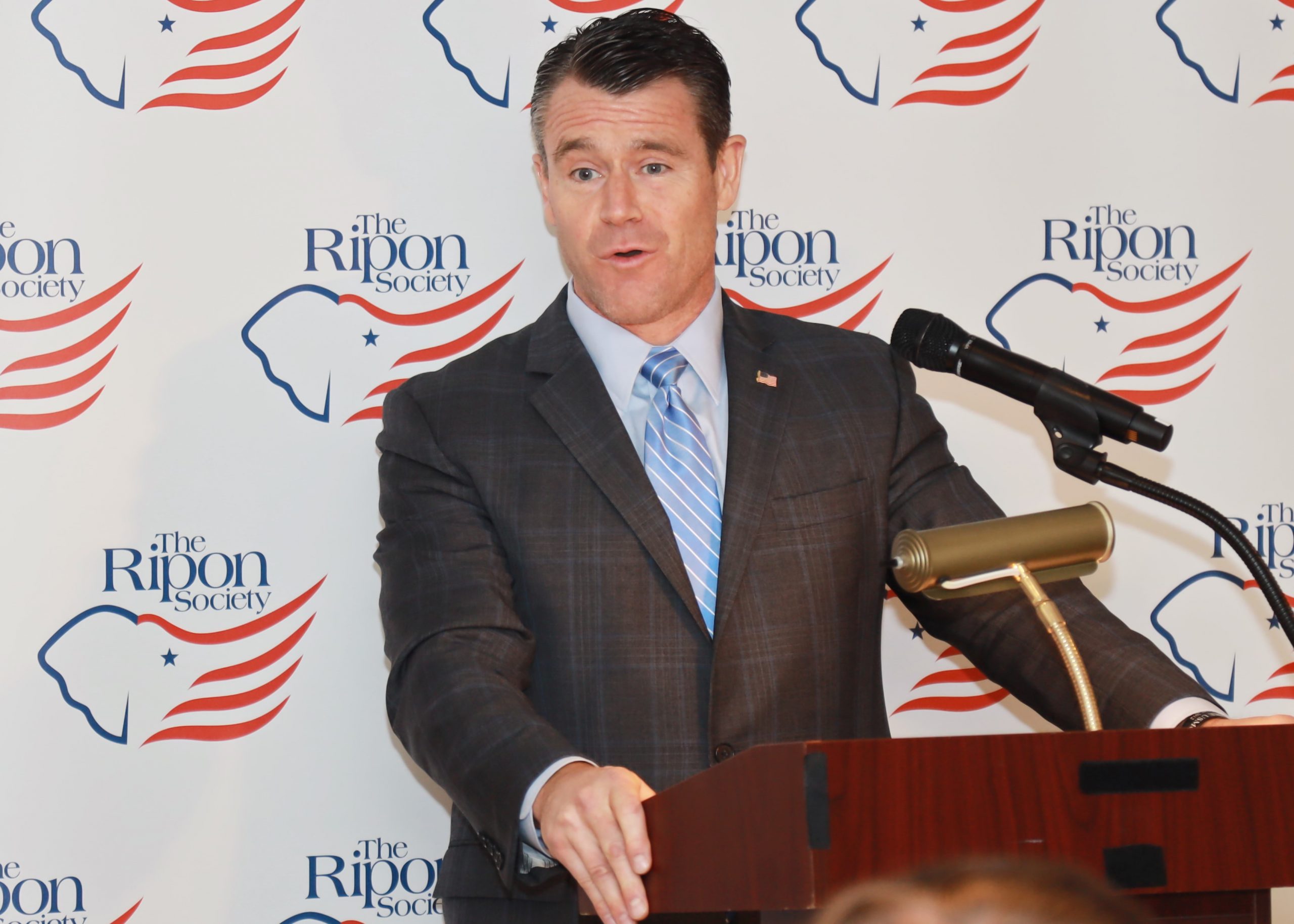
Young Leads Effort to Strengthen America’s Competitive Advantage Around the World
WASHINGTON, DC — U.S. Sen. Todd Young (R-IN) appeared this past Wednesday before a luncheon meeting of The Ripon Society, delivering remarks about the growing threat of China and how legislation he has authored called The Endless Frontier Act would help America take on this threat and retain its competitive advantage around the world.
“This bill shifts America’s posture from defense to offense when it comes to China,” the Indiana lawmaker stated. “It gives our citizens the tools and means to out-innovate, outcompete, and outgrow the Chinese Communist Party. But the bill is about more than China. It’s about using this moment in our nation’s history to become a better version of ourselves. This is exactly what we did following World War II and during the Cold War.
“We decided to invest in ourselves in the GI Bill and the interstate highway system. We had a Sputnik moment, and we responded by standing up NASA. By seeding a capital from the federal level in a targeted fashion, we created new industries, like the aerospace industry. And it now spins off a trillion dollars of wealth to the American economy on an annual basis. We created breakthrough, life-saving, life-improving innovations, like the MRI. We can do all of this again by harnessing our unique ecosystem here in the United States.”
Young was elected to the Senate in 2017 after serving three terms in the House. Since coming to Washington, he has earned a reputation as a smart hawk who is not afraid to work across party lines, and was described earlier this year in Politico as “the go-to Republican to forge bipartisan consensus on global affairs.”
One of those areas of consensus is The Endless Frontier Act, which Young authored with Senate Democratic Leader Chuck Schumer of New York and which the Senate approved as part of a larger measure on June 8th.
“The Endless Frontier Act seeks to encourage, extend, and leverage our very American impulse to innovate in a way that’s been unseen since the Space Race,” Young said of the plan. “It’s going to change the way the federal government invests in key technologies. And it will fund products and fields as diverse as AI, quantum computing, life sciences, genomics, material science, battery storage, and so on.
“This will be possible because of a bipartisan $81 billion strategic investment in the National Science Foundation, bolstering our science and tech R&D, including $29 billion in a brand-new tech and innovation directory. And it will deliver an additional $10 billion to establish regional tech hubs across the country to launch innovative companies, revive American manufacturing, and create new 21st century good-paying jobs to jumpstart our local communities. This is especially important to places like my state of Indiana, and especially important for a party that now claims to be the party of the working class.
“Our policies have to match our rhetoric. Our policies have to match our cultural signal. And this is a policy that does just that. Just five cities — Boston, San Diego, San Francisco, San Jose, and Seattle — enjoy more than 90% of the job growth in advanced sectors like tech, computer manufacturing, biotech, and telecom between 2005 and 2017. I believe in the importance of diversity — I think we need a diverse party. But I also think we need to emphasize geographic diversity. Everyone across this country needs to feel represented in this hyper-dynamic, hyper-competitive global economy. We need to make sure that we bring everyone along.
“In 2019, only three coastal states — California, Massachusetts, and New York — made up more than 75% of all venture-backed investments in the United States. The EFA will have more Americans and more parts of America get more skin in the game. If you make these fundamental investments that flow through universities or flow through our national labs, startups will spin off where the research is occurring. Venture capital will no doubt follow where the research is. Talent will be retained across the Heartland. Talent will be attracted to the Heartland. And we will see the next Silicon Valley, the next Boston, and next research triangle in areas throughout the country.”
According to Young, this kind of investment will not only help America in its effort to win the future, but is consistent with our nation’s — and the Republican Party’s — heritage of exploration and discovery in the past.
“We Americans have always been drawn to the frontier,” Young observed. “We Republicans have also always been drawn to the frontier. Our first standard bearer, John C. Fremont, the great Pathfinder, was an Explorer. I hope the Endless Frontier Act encourages our party to take the lead to find ways to work with the opposition. Together, I think we can unleash this imprisoned lightening across this land and aid so many Americans in their pursuit of happiness. Let us not forget this was the purpose of that meeting in March of 1854 in the town of Ripon. Our work goes on.”
To view Young’s remarks before The Ripon Society luncheon discussion Wednesday afternoon, please click on the link below:
The Ripon Society is a public policy organization that was founded in 1962 and takes its name from the town where the Republican Party was born in 1854 – Ripon, Wisconsin. One of the main goals of The Ripon Society is to promote the ideas and principles that have made America great and contributed to the GOP’s success. These ideas include keeping our nation secure, keeping taxes low and having a federal government that is smaller, smarter and more accountable to the people.



